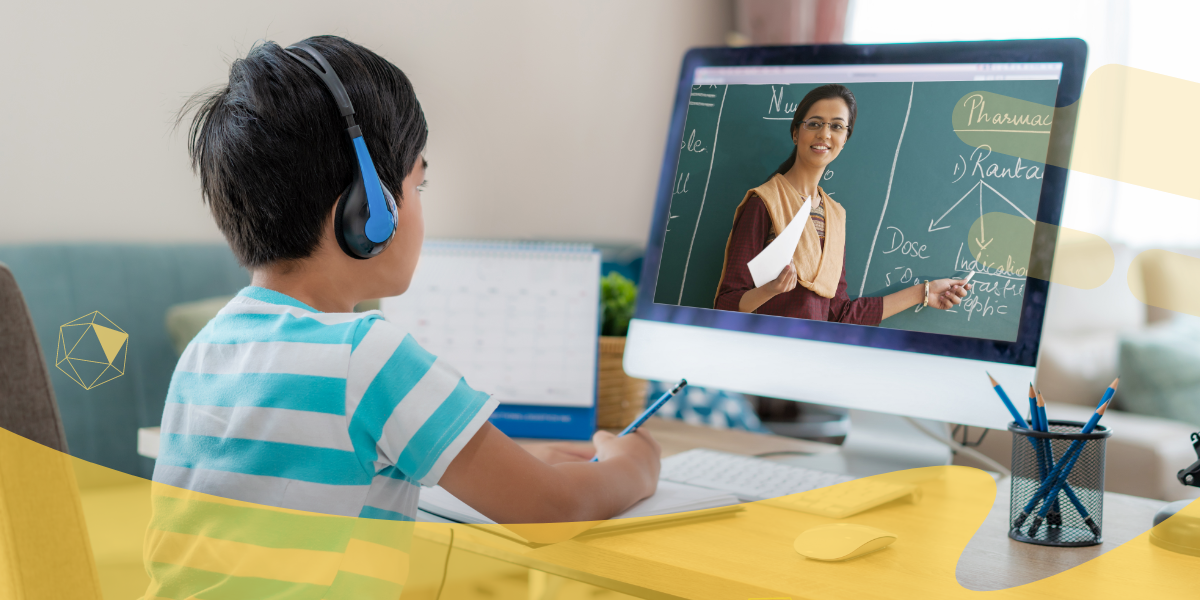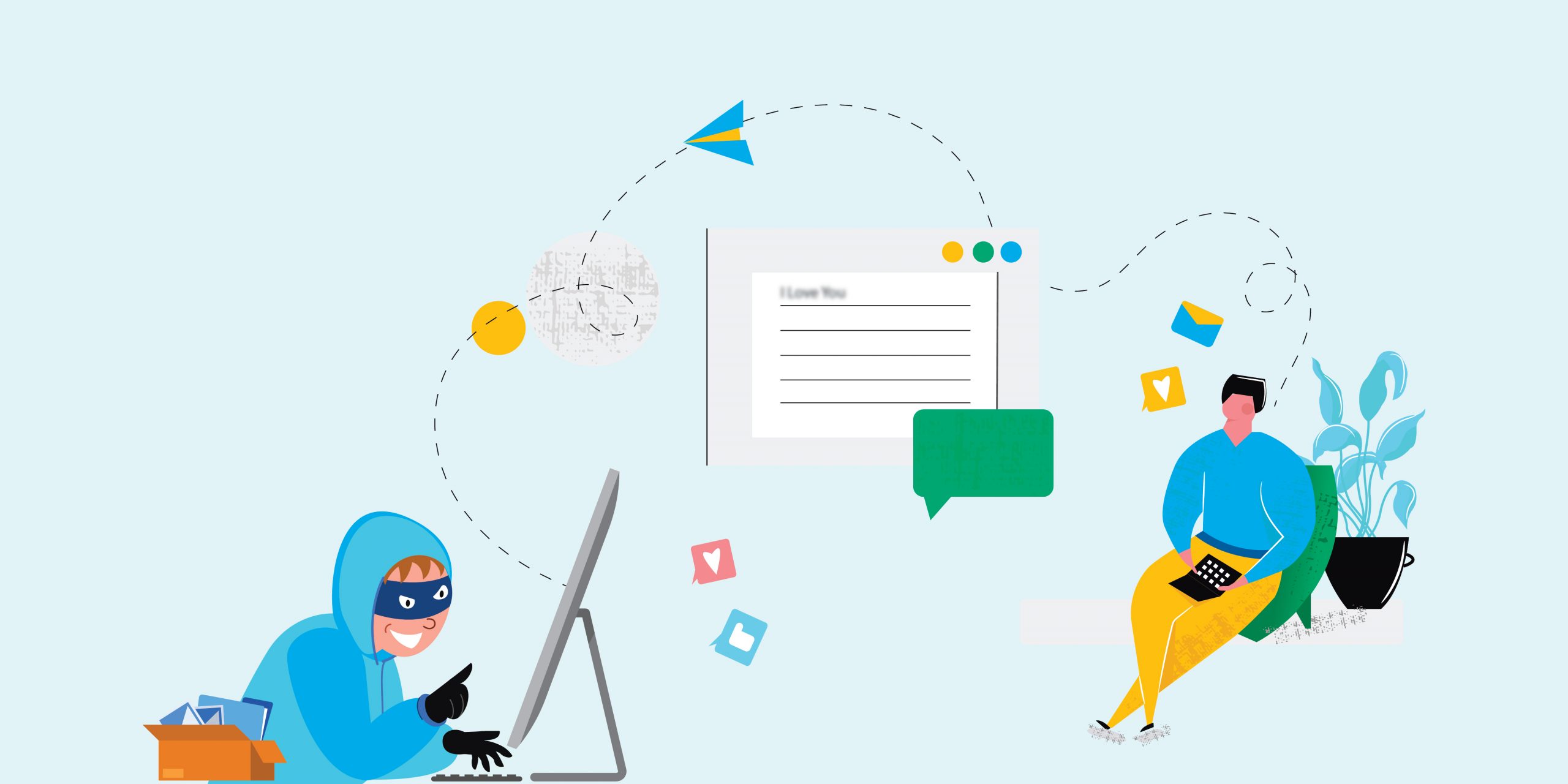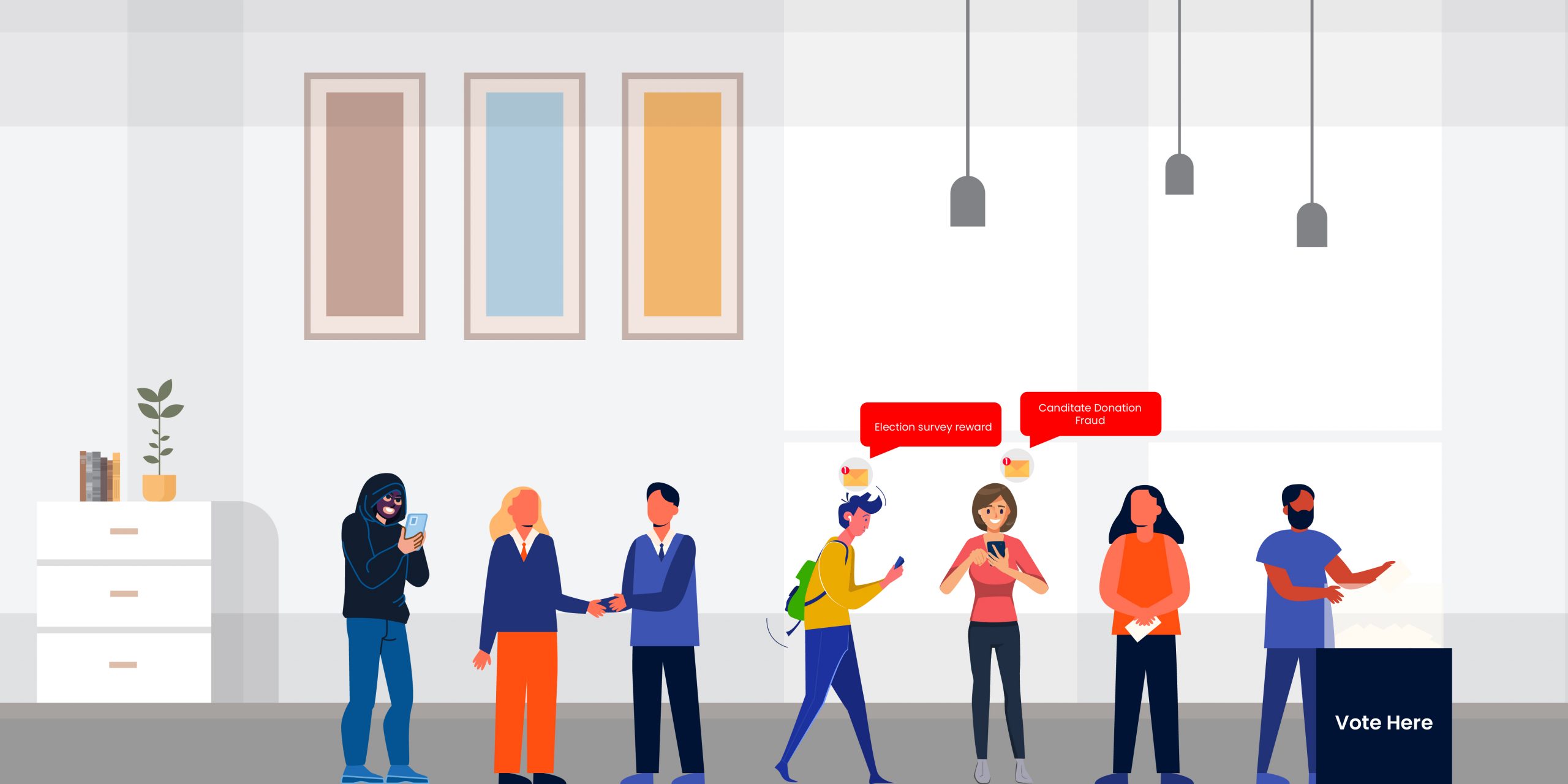Hearing my neighbours speak of their kids attending online classes dressed in school uniform shirts but casual shorts, because only their shirts will be seen in a virtual classroom, brought home to me that children are now in the same situation as their parents who are working from home. But as children they are much less aware of cyberthreats, more likely to be cyberbullied, more likely to trust without verifying, and more likely to lead with curiosity instead of caution.
All these can make children far more susceptible to the many dangers that lurk in cyberspace. This blog aims to help parents with practical steps to keep their children cybersafe while they attend school online during this pandemic.
10 Tips To Make Online School Safe for Children
1. Supervise Their Learning
Even if you yourself are busy working from home or otherwise occupied, ensure that you can keep an eye on your child’s screen.
- If they are using a mobile device, you will find it easier to see the screen if you give them a stand to mount the device for hands-free viewing
- If they are using a desktop, move it to a location where you can easily monitor their activity
2. Insist on Password Hygiene
Enforce password hygiene the same way you would insist on personal hygiene.
- Check all the accounts your children sign up for to ensure they are genuine websites or services
- Create strong passwords. We have a guide to help you
- Login to the websites or apps yourself, whenever you can
- Use a password manager to help your children remember and use long and difficult passwords. Write down their passwords as a backup
- Never reuse or recycle passwords. Every website or app should have a different password every time
- Change passwords at regular intervals
- Remind children that they should never share passwords. If they receive a message from a teacher requesting their password, ask them to inform you so that you can confirm the request directly with the teacher as such requests are usually from scammers
3. Block Ads
Online education increases the risk of your children being exposed to explicit or inappropriate advertising, which could also lead them to malware that could infect the device.
- Use a cybersecurity product to block ads
- Teach your children not to click on any ads that manage to evade ad blocking
4. Secure the Webcam
The webcam is a wonderful tool that adds interactivity to online schooling as the teacher and student can see each other. Unfortunately, online predators can use a webcam to spy on your children.
- Keep the webcam physically covered when not in use
- Use a cybersecurity product with Webcam Protection to prevent cyber spying by controlling whether the webcam can be accessed and which applications can access the webcam
5. Safeguard Identity
Educate your children on the importance of keeping their (and your) identity safe when using online services. Help them understand what constitutes personal information and why it shouldn’t be disclosed without first checking with parents.
- Full names should not provided even as logins unless absolutely necessary
- Sensitive information such as address, location, parents’ names, and phone numbers should be disclosed only with parents’ consent
- Use a cybersecurity product with Identity Protection to be warned when personal information is transmitted from the device
6. Protect Against Hacker Attacks
A hacker attacks every 39 seconds. It is a sobering statistic that reminds us that network security is critical in ensuring online safety.
- Change the default username and password on your Wi-Fi router
- Do not use a personally identifiable Wi-Fi network name (SSID), such as your name or your child’s name
- Use a firewall with Intrusion Detection & Protection to stop hacker intrusions
7. Block Malicious Websites
Online learning can be even more educational when it extends beyond the virtual classroom to other parts of the internet, but many websites are either intentionally or inadvertently risky and it is better to be safe than sorry.
- Keep a list of the websites that your child needs to access, and check if they have HTTPS or HTTP in the address (HTTPS is safer and should be preferred)
- Store the websites that you have verified in the browser’s Favourites list and ask your child to access the sites from the Favourites list, to reduce the risk of a typo taking them to a different website
- Install a cybersecurity tool that will block known as well as potentially malicious websites
8. Control Application Use
Children can also suffer from distraction during online classes because the internet has a lot to distract them with. There are many applications, like chat apps or games, that they can begin to use once they have access to a connected device.
- Maintain a list of permitted applications that your child can access during school hours
- Use a cybersecurity product with parental control features to restrict the applications that your child can access, either at any time or during school hours
- If the device is exclusively used by your child, uninstall applications that your child doesn’t require. This has the additional benefit of reducing the attack surface as any app can have a vulnerability that a cyberattacker can exploit, and having fewer apps makes the device safer
9. Watch Out For Digital Addiction
Even adults can get addicted to digital devices, and children’s curiosity and fascination with anything new and exciting can make them obsess over a device or their online connections. Monitor your child’s use of connected devices and restrict their screen time if required to preserve their mental health.
- Use a cybersecurity product with appropriate parental control features to restrict your child’s use of applications to school hours, if you will not be able to physically control their access to the device at other times
- Mobile devices may also have a digital wellbeing feature that you can use to protect your child from digital addiction
10. Listen To Your Child
Always talk to your child at the end of the school day to keep up with their activities. Be friendly and listen actively to encourage them to share their online experiences.
- Learn about who they are interacting with online and why. Be particularly careful in identifying any strangers who may be talking to them, or anyone who sounds like an adult pretending to be a child
- Watch out for signs of cyberbullying, which can be more vicious than conventional bullying because the internet follows the victim around everywhere. Read more on the 10 types of cyberbully every parent must know
K7 Total Security is a comprehensive, award-winning cybersecurity product that can help you keep your child safe from the many dangers that may accompany online education, including viruses, hackers, webcam spies, identity theft, and malicious websites. It also includes Parental Control features that enable ad blocking and safe use of digital applications.











